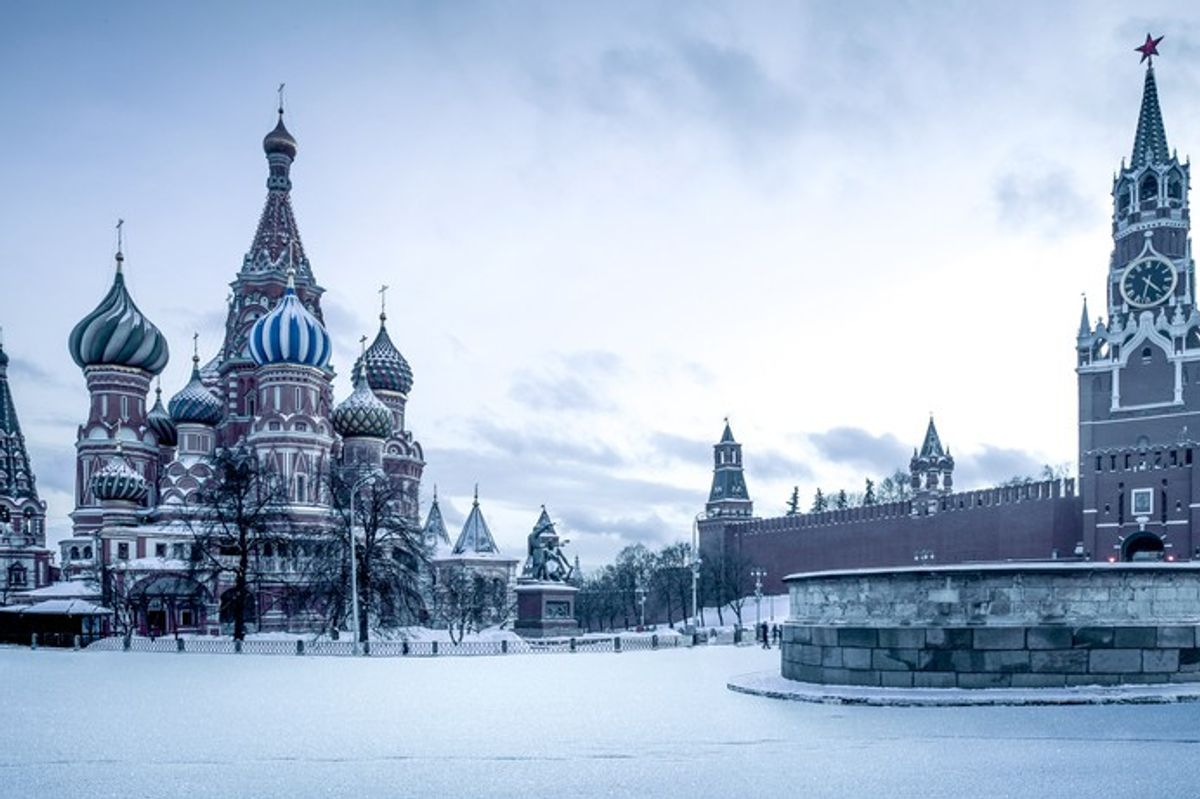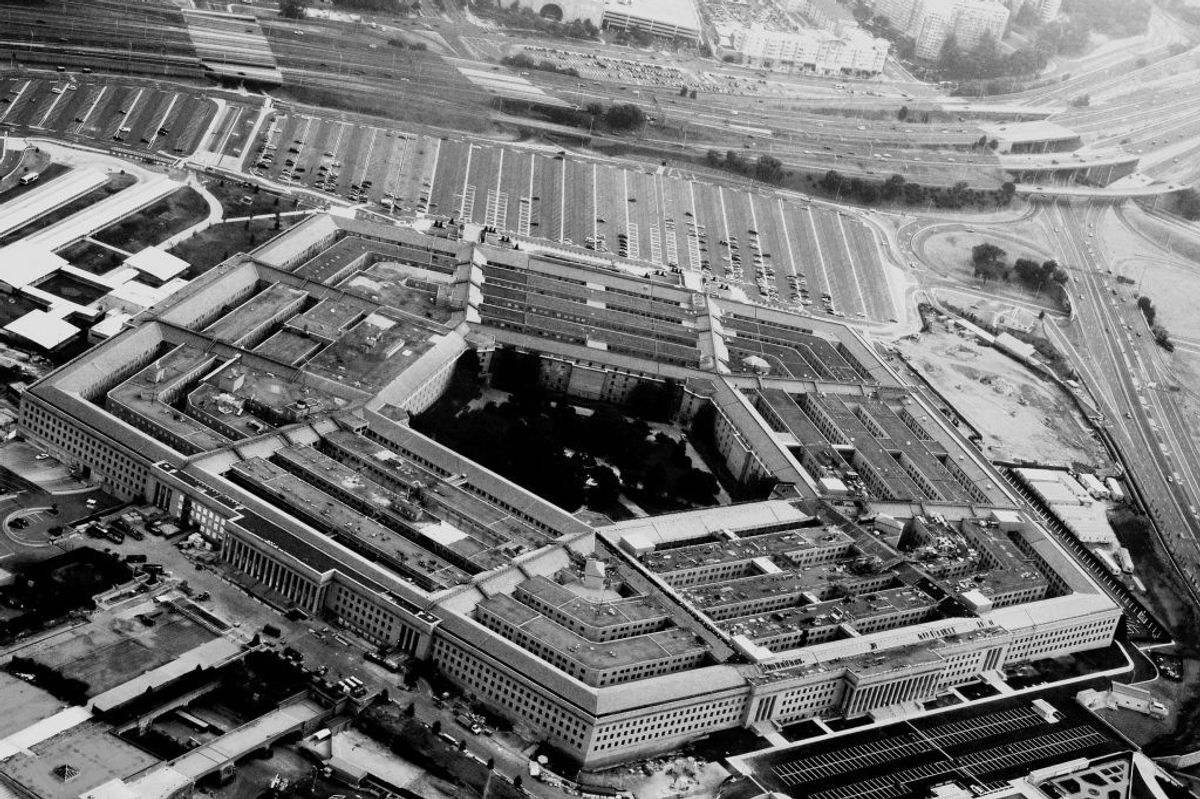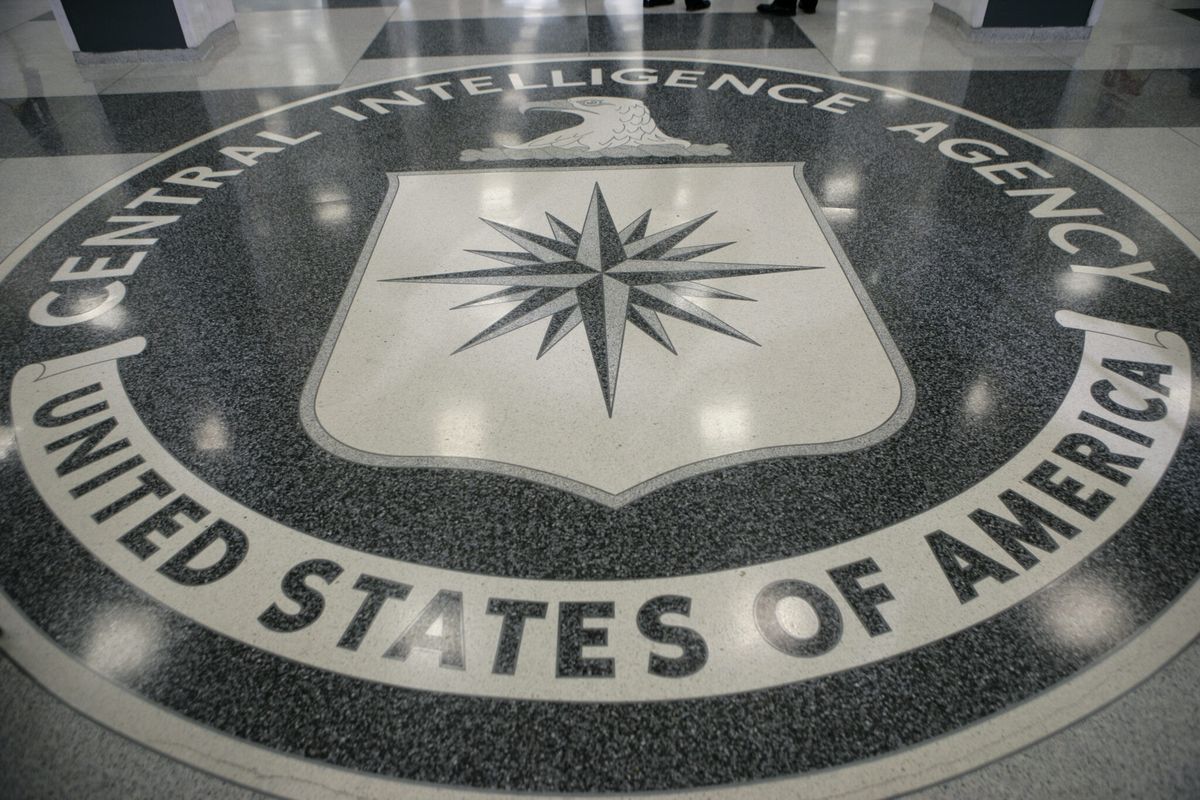This week The Cipher Brief’s Executive Producer and Reporter Leone Lakhani speaks to John Nixon, author of “Debriefing The President: The Interrogation of Saddam Hussein.”
John, who spent much of his career profiling Saddam, was the first CIA analyst to question the Iraqi leader after his capture.
In the first part of our interview, he describes how he felt when he finally came face-to-face with the Iraqi leader, what he uncovered about the weapons of mass destruction, and his views on Saddam’s trial and execution.
The Cipher Brief: You lived and breathed Saddam for years. So when you first came face to face with him, was he what you expected?
John Nixon: As I was walking down this hallway to the room where he was being held, I remember thinking, “You know, maybe It’s not him. Maybe it is going to be someone else. They’ve got the wrong guy.” We had been down this path so many times.
When the door opened, I was pinching myself because I couldn’t believe I was here at this moment in history. I’d been asked to make sure it was him, to identify him. I had certain things I was looking for, but to be honest, the second I laid eyes on him, I knew it was him.
TCB: How did he appear to you? Was he like a larger than life figure? You talked about how charismatic he was. Did you sense that as soon as you saw him?
JN: The thing that really set me back was just how well acclimated he was to his surroundings, after having been taken prisoner and being surrounded by his captors. Saddam seemed to act as though he came here every Saturday night and in fact, we were his guests. He seemed to be very much in control of his faculties.
TCB: You’re about 6’5’’ and he was also quite a tall man wasn’t he?
JN: Yes. Someone from the military said, these men want to ask you some questions, and he gave me this look, and it was the exact same look that was on the cover of this book on my desk called Republic of Fear by Kanan Makiya.
I remember feeling a chill go down my spine, because I looked at it [the book cover] every day for years.
The first night of the capture, when we talked to him, it was a very contentious meeting. It was only the next time I met him that I could feel his charisma, and he really had it in spades. He walked into the room and you felt a difference in the room.
TCB: Who was part of your interrogation team?
JN: It was myself and a man named Bruce who was a polygrapher. He was there to kind of serve as the facilitator in conversation. And then there was an interpreter named Ahmed from the military.
TCB: But you never put Saddam through a lie detection test? Why was that?
JN: He probably wouldn’t have agreed to do it, and there just wasn’t any need for it.
TCB: You had a number of ways to identify him, because of all the reports that he used body doubles?
JN: One of the more persistent myths about Saddam Hussein was the body double issue. I still get questions to this day about them, and people seem disappointed when I tell them they didn’t exist.
TCB: Why do you think they didn’t exist? Because he told you they didn’t exist?
JN: A, he told me they don’t exist. B, we already knew they didn’t exist through a variety of reporting, and the only people who seemed to think they did exist were people who had proclivity for sensationalism.
For many years, Saddam himself didn’t pour cold water on that story because it added to his myth. Anything that made it more difficult for people who might try to target him, added to his safety. Saddam would often have bodyguards around him. Sometimes he would have them go on the roof and wave to the crowd, and I think that is where this may have started.
As far as what I was looking for, there are some physical characteristics that he had: tribal tattoos, a scar on his leg from a bullet wound. He was known to have a fairly bad back, and I was looking for that. He also had this rather droopy lip from a lifetime of smoking cigars.
TCB: No one expected to find him alive, so they didn’t really know what to do with him in the beginning. You said there was some valuable time lost before you were able to question him. Why?
JN: One of the problems I find when Washington becomes obsessed with another leader is that we make ourselves believe that somehow they are extremists or that they want to become martyrs. If we corner them, they are going to go down in a blaze of glory when, in fact, psychiatrists will say, “Saddam is the last person who wants to kill himself. He is a narcissist. He wants to live because he feels his country can’t exist without him.” The same is true for [Iranian Supreme leader] Ayatollah Khamenei. Same is true of {Libyan President Moammar} Gaddafi. Same is true of [Osama] bin Laden.
Saddam sat in his cell for about five to six days. When you have a detainee, it’s very important to start questioning them right away, because the shock of capture can sometimes loosen tongues, and they can give you information that they might not, once they settle down and get used to their surroundings.
TCB: He started speaking quite quickly when you began the debriefing. Did that surprise you?
JN: Saddam had really compelling reasons to talk to us. A, he really didn’t want to sit in his cell all day long. He was bored, and he didn’t have access to writing utensils, which angered him. B, it was important for him to find out what we wanted to know, because this was sort of an intelligence gathering bit on his part. Finally, I think he was trying out his answers to see how well they went over. Being the narcissist that he was, he loved to talk about himself. There were times we couldn’t shut him up. But there were a lot of things that he didn’t want to talk about.
TCB: WMD’s [Weapons of Mass Destruction] for instance? Or crimes he had been accused of? How did he address those?
JN: He was such a suspicious person, and he was so distrustful. He was always answering questions with questions of his own. He always gave you the impression that he was lying, or he was holding back information. I would have to go back and check the record.
But on topics like weapons of mass destruction, he was generally telling the truth. A very important piece of information I found was about the use of chemical weapons on the Kurds in 1988 in Halabja. It was something that he did not sanction. He did not give the order for that. It was a decision made on the battlefield by one of his generals. Actually, Saddam was angry about that when he found out.
To be honest with you, when he first told me, I didn’t believe him. It wasn’t until I started looking at what some of the other detainees said, they corroborated it.
TCB: In the book, you say that when you first went to Iraq, you were convinced that there were WMDs. But when you spoke to Saddam and he denied it, you must have been thinking “This man is a liar. He’s not telling me the truth.” So what convinced you?
JN: The consistency of his answers. Then, when I got back to headquarters, I began to talk to some of my colleagues. I started going through transcripts of what was being said by people in the scientific community, and that is when it really began to sink in that he was telling the truth here.
TCB: How difficult was that to sell to Washington?
JN: It was met with disappointment and resignation, and a desire of not really wanting to know. I think that people at the Agency felt that careers would be ended because of this. To a certain degree, they were right.
TCB: In terms of the actual interrogation, which lasted about a month, he was given POW status, which meant that he was protected under the Geneva Conventions. Do you think that made a difference in how cooperative he was?
JN: Not necessarily. The head of our team wanted initially to use enhanced interrogation techniques on Saddam. Thank God that was nixed by headquarters because he would have shut down. He would not have cooperated after that. He still felt that he was President. He still felt that he was being mistreated, and later would make claims that he was tortured.
He was always railing about how he’s not allowed to have access to news. He’s not allowed to have access to pen and paper.
TCB: From what you wrote in your book, you said he had handed over a lot of his day-to-day power to his aides, and that he was writing a novel. Was that all true? What was in the novel?
JN: You know, talk about a human rights abuse. When he got captured, there was about 700 pages of a manuscript and poetry that he had written. It’s some of the worst things I have ever read in my life. But he identified himself as a writer, that he had things he wanted to say, and that he should be allowed to have access to them, but the military absolutely refused.
I read a lot of it the day after the capture. It was sort of a medieval tale of knights and damsels in distress, and it wasn’t very good. A week before the the U.S. army rolled into the country, he was handing off drafts to [Iraq Deputy Prime Minister] Tariq Aziz.
At the CIA, we always believed Saddam was a master manipulator and he was always matching wits with us and trying to stay ahead of us. But our sources of information had really dried up on Saddam, and we were really dependent on some very suspicious reporting.
The Saddam of the 1980s, and even the Saddam of the 1990s was not the Saddam of 2002, 2003. He was an elderly man. He was interested in other pursuits, and he was really not interested in the day to day push and pull of governing the country. He wanted to spend time with his second wife. He also wanted to spend time writing. This was at odds with the Bush Administration’s depiction of a mad man who wants a nuclear weapon.
TCB: In the book you mention that one of the few times he was emotional was when he spoke about his daughters. So what did he say about his family?
JN: He would discuss his sons, but when it came to the women in the family, he said “women are separate and we don’t discuss them.” That is true in Arab culture.
We told him, Saddam we have to talk about this, but he gave out very limited information. For example, to this day, I have no idea where his first wife Sajida went. She virtually disappeared off the face of the earth, and his daughter Hala was with her when they left.
When he spoke about his daughters is the only time his eyes got a little watery, and there was real sadness in his voice. As far as the sons go, Saddam was aware of their shortcomings but he stuck to the line that they died, defending their country. In fact, that was not the case at all.
TCB: He also gave advice to the Americans and explained why the U.S. would not succeed in Iraq. What kind of advice did he give?
JN: He said, “I want to tell you something. You’re going to fail here. You’re not going to succeed in what you’re trying to do in Iraq.”
I said, “But Saddam you’re sitting here talking to me. Your regime is no more. Your army has disappeared, and the U.S. army is here. How on earth are we going to fail?”
He said, “Well you don’t understand the Iraqi mentality. You don’t understand the Arab mind. You don’t know the history. You don’t know the language. Therefore, you’re just going to fail.”
I didn’t want to encourage him by saying “I agree,” but I remember thinking “I think you have a point there.” Subsequently, I think he has been proven right by events.
TCB: I’m curious how you felt when you watched the trial of Saddam and his execution?
JN: Well, the trial was a kangaroo court. Some of the things that we learned after the trial disturbed me about the Maliki government putting pressure on the judges to come up with a guilty verdict and execution as the punishment.
I kind of expected that a little bit. I didn’t expect how the execution was handled.
When I was talking to Saddam, in the back of my mind I said to myself, “this is going to end with his execution.” Saddam was of the same opinion. He said to me, “I know this is going to end my life. I am perfectly at ease with God over what I’ve done.”
I thought, if he is executed, then maybe the Iraqi people will know there’s rule of law in their country. If people are judged and held accountable for their actions, it will be a good thing. It will help Iraq get started again, and it will bring closure to the victims of Saddam’s rule.
I think Saddam was more accurate in his assessment of how this was going to play out. There was this Iraqi way of handling it, which was basically mob justice.
For more on our interview with John Nixon, listen to our 15 Minutes podcast here.















